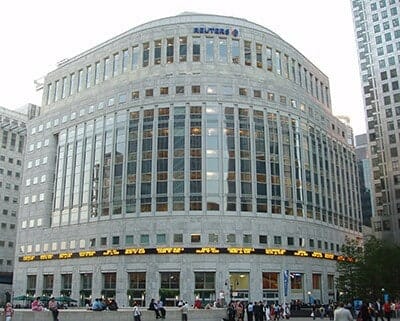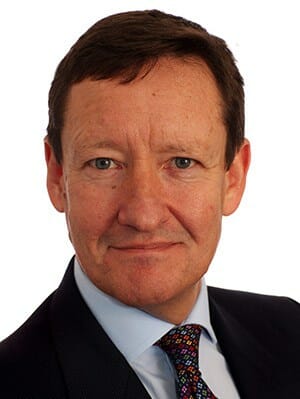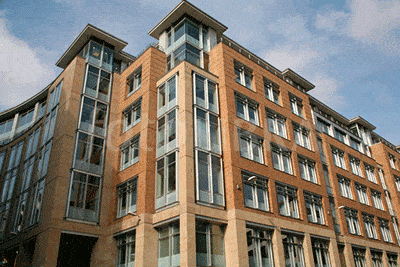
China’s HNA bought 30 South Colonnade on Canary Wharf last year for $189M
Asia’s real estate investors may be looking for a new favorite overseas destination for their funds following last week’s shock decision by the UK to leave the European Union.
The Brexit vote is causing new uncertainty for the London real estate market, which attracted more than $8.1 billion in capital from Asia last year, particularly in light of statements from financial institutions including JP Morgan Chase and HSBC, that they would relocate thousands of staff away from the UK financial hub.
London was the leading destination for Asian real estate investment in the world last year, capturing 13 percent of the global total, but has already seen fewer acquisitions this year by investors from mainland China, Singapore and Hong Kong, as potential buyers wait to see the impact of the historic vote on the UK economy.
Brexit Vote Seen Creating Uncertainty

JLL UK CEO Chris Ireland sees Brexit creating uncertainty in real estate markets
“Even if it is effectively ‘business as usual’ for the UK in terms of trade and legislation until 2018, such a major change will inevitably create uncertainty in the economy and real estate markets,” said Chris Ireland, UK CEO of property services firm JLL. Under the terms of European Union agreements, the United Kingdom now has two years to negotiate the terms of its withdrawal from the European economic and political body.
Commercial real estate deals in the UK were already down by 43 percent to $15.9 billion in the first quarter of 2016, compared to the same period last year, according to statistics from Real Capital Analytics. The slump has hit hardest in London, whose economy is dominated by the finance sector, with transaction volumes in the UK capital down by 47 percent in the first three months of this year, to $6.8 billion. Industry analysts have blamed the slowdown, at least in part, over fears of what might happen should the UK vote to leave the European Union.
Now those nightmares have become reality, with Asian investors, many of whom had only just begun to gain familiarity with the London market facing new levels of uncertainty regarding future demand for office space from key tenants such as global banks.
Global Markets Fearful Over UK Economic Future
The fears of many investors about the economic impact of Brexit have appeared justified in the days since the referendum on Britain’s links to the European common market.
The British pound closed down 8.1 percent in trading against the dollar, after having slid by as much as 11 percent against the US currency during the day – the biggest slide in the pound in more than 30 years.
Before the Brexit vote, major financial sector employers HSBC and JP Morgan Chase, both of which maintain offices in London’s financial district, had said that they might relocate some of their UK-based positions to other countries should the Brexit referendum pass. This potential down-draft for London is fuelling concerns over falling asset values in a city where investment yields had already been pinched by rising property prices.

Mainland billionaire Hui Wing Mau last year bought Goldman Sach’s London HQ
“In the short term we may see a weakening in occupier demand. The impact on rents may be limited by tight supply, but activity will be adversely hit while initial uncertainty about direction and timing continues,” says JLL’s Ireland. The brokerage executive added, however, that the market could bounce back in the future.
To what extent the London market recovers will depend largely on how the UK’s departure from the European Union is handled, and where institutional occupiers decide to employ their European staff.
In the past year, several mainland investors have acquired properties in London, the value of most of these being tied to the health of the city’s financial services industry.
In July last year, Hui Wing Mau, the chairman of mainland developer Shimao Properties bought Goldman Sach’s 303,000 square foot (28,150 square metre) London headquarters for an undisclosed sum, just two months before China’s HNA Group bought the Reuters building in London’s Canary Wharf financial district for $189 million.
Then in January of this year, China’s Poly Real Estate Group entered the UK market by purchasing the 5 Fleet Place office block in London for $208.6M.
Major Banks Could Pull Up Stakes
Before the Brexit vote, America’s largest bank, JPMorgan Chase, had said that a decision by the UK to leave the European Union might lead it to move as much as 25 percent of its British-based roles to other locations. That sentiment was echoed by HSBC, which has said that it would move 1,000 staff from London to Paris if the UK was no longer part of the European Union.
On Friday, US investment bank Morgan Stanley denied reports by the BBC that it was planning to move 2,000 London-based jobs out of the UK, which it has traditionally used as a hub for servicing clients in continental Europe, as well as in the United Kingdom.
Leave a Reply